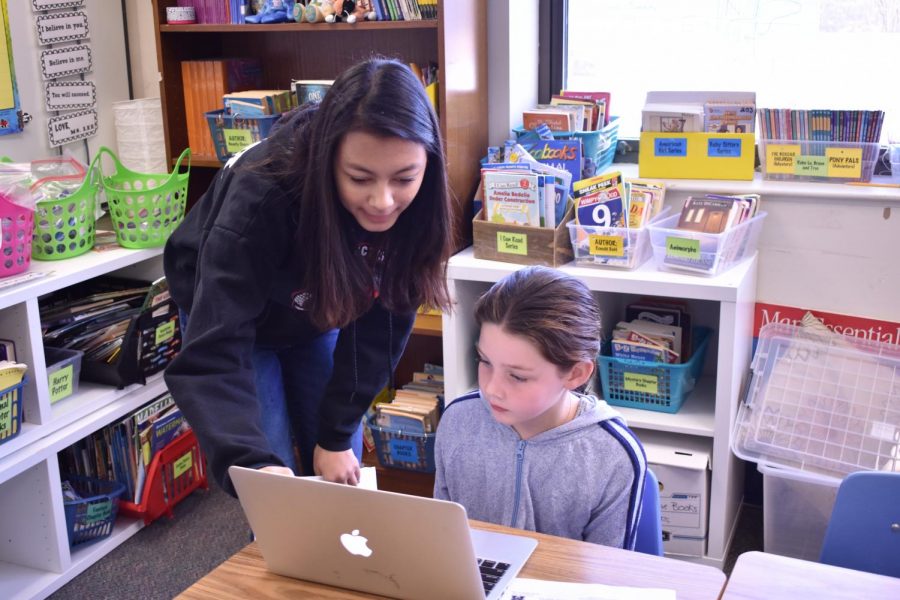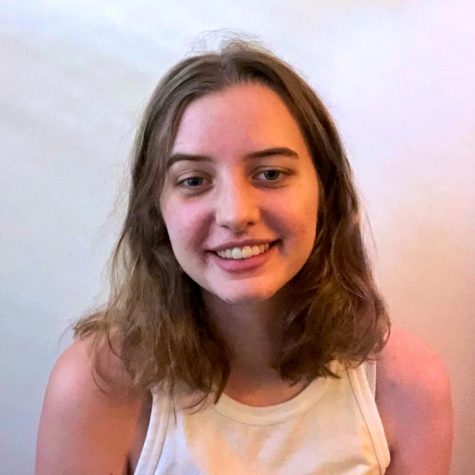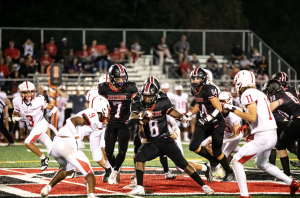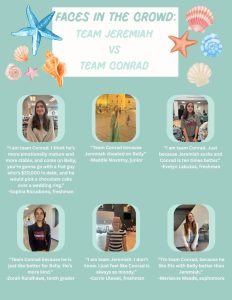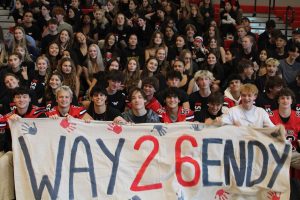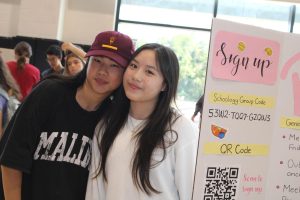Anuragi Thapliya: Taking a stand in STEM
Thapliya (left) teaches a student to code using a program called Scratch at TJ Elementary School last fall. Photo courtesy of Anuragi Thapliya.
June 7, 2019
“Can you use this article to tell more Mason girls to do CompSci and stuff?” Anuragi asks me. Laughing, I tell her I’m “using this” to write about her.
“Yeah,” she says, “but say somewhere that you don’t need to have technical skill or background to join robotics.”
Sophomore Anuragi Thapliya and I are sitting in the cafeteria. It’s completely crowded, and deafeningly loud, but she’s calm and focused as she talks to me. She seems to operate with a sense of duty – she wants girls to feel welcomed in STEM spaces, and that seems to always be at the front of her mind.
I ask her where this passion came from. “Well, I do remember one thing,” she says. She tells me about coming home from a day at a summer robotics camp, where she was the only girl. “I was really upset. I really didn’t want to go back. My mom just told me no. She explained that I should be proud to be there.”
“Since then, I’ve never thought twice about being the only girl in a room.”
Anuragi has found herself as the only girl in a room, or at least one of few, time and time again.
“I mean, look at my comp sci class,” she says. “There are three girls out of thirty. And I’m one of two sophomore girls in robotics.”
She doesn’t think Mason is doing a good enough job at trying to change that. “We need to include young women and make space for them,” she says. “A lot of it is the social stigma around girls in STEM.”
And in response to the failures she sees in the culture of Mason, she has devoted herself to reaching out to girls in STEM all on her own.
Two summers ago, Thapliya worked with a summer camp in Herndon called Girls Get IT. It was one week long, completely free, and specifically designed for Nepalese girls with busy working parents. She planned and taught lessons on social media privacy and the basics of coding.
“Girls left [the camp] and joined their schools’ robotics teams,” she tells me, grinning. “It was really a success.”
Last summer, she traveled to a rural village in Nepal and established a learning center, equipped with computers, projectors, coding and typing education programs, and “like fifty pounds of legos.” While there, she taught four girls her age coding basics through a program called Scratch.
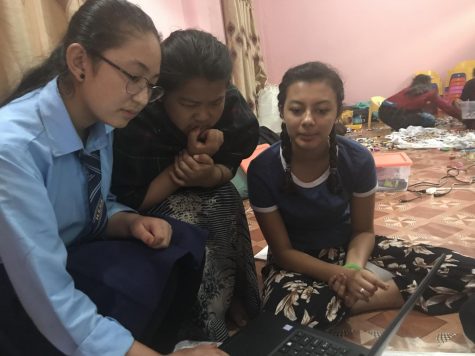
This summer, she’s working with the Family Heritage Foundation to put on a summer camp for refugee and at-risk kids in the state of Georgia.
“We’ll teach them about cybersecurity and coding,” she explains. “It’s going to be amazing.”
I ask her if she keeps so busy during the school year. Sophomore Ashley Zigler, one of her best friends, chimes in.
“She has no free time. It’s been like two months since we’ve hung out on the weekends.”
“Five months,” Thapliya interjects. “I counted.”
“I’m just really trying to follow that passion,” she says, defending her packed schedule. “I really do care about STEM education.”
Right now, she’s working for a local organization called CodeNinjas, which provides mentors and a self-paced curriculum for kids to learn to code. She’s also working with TJ Elementary School at after school STEM programs. And she’s a mechanic on the Mason robotics team – during the season, that takes up hours upon hours of her time.
“I build, design, and prototype the robot. I’m also one out of the two girls on the drive team,” she says.
Through robotics, she met some of her closest friends. She tells me, smiling, about the friends she has made from other teams, many through “females-in-STEM stuff” the robotics program puts on.
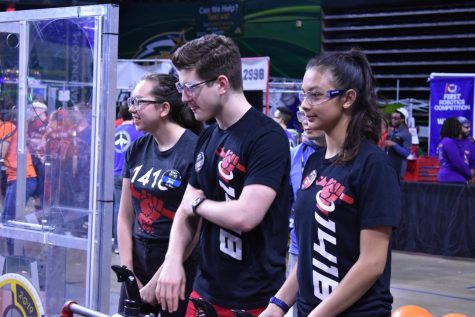
She’s done even more STEM outreach through robotics. “[Junior] Sophia Heartney and I went to Richmond to testify for STEM education funding for underprivileged schools,” she says. “It didn’t go through, but it was such a great experience.”
Although she’s looking to boost up other girls in STEM, she doesn’t allow her own accomplishments to get tabled. She speaks confidently about the way she occupies STEM spaces she used to feel uncomfortable in.
That confidence and passion really does work towards her mission. I’m taking CompSci next year because of her encouragement, and two of my friends are too. And through her constant outreach projects, she’s inspired countless more to get involved in tech and science, inside and outside of Mason.



